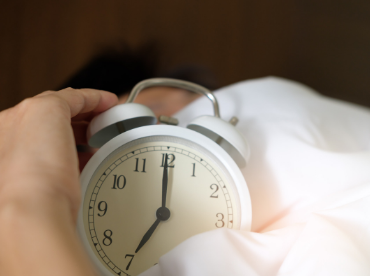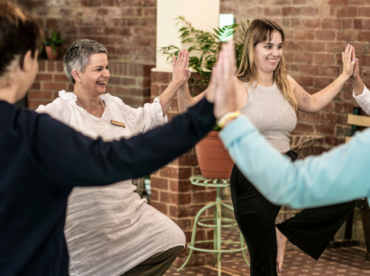For most states in Australia we’re nearing the end of daylight saving and the long summer days. Don’t fret, on Sunday, April 7, we set our clocks back for one extra hour of sleep, which is nothing to complain about.
However, you may have noticed that our mornings and nights are starting to get darker which may start to affect your sleep schedule. Not only that it may also affect your eating, work and exercise habits.
Healthline explains that “without sleep, we’re more prone to craving unhealthy, high-calorie foods, and we’re less likely to exercise. This combination can cause you to feel more irritable and less productive. Not to mention, the more sleep-deprived you are, the more likely you are to get sick.”
Have no fear, there are several ways to help you make the transition without too much disruption to your current schedule. Here are some healthy ways to adjust to the end of daylight saving and make the most of that extra hour of sleep!
Take Advantage of the Morning Light
Whilst the mornings are currently quite dark, once we reach April 7 we’ll be able to enjoy more daylight hours in the morning. Which means you are less likely to sleep in, hence enjoying the daylight hours for the most productive time of the day.
Set your alarm an hour earlier since 7 o’clock will be the new 6 o’clock and use the beautiful morning light to your advantage! Enjoy that time to start a schedule of becoming more energised in the morning, whether you want to go for a walk, meditate, read a book or enjoy a yummy breakfast.
Try Not to Worry
The effects of sleep deprivation can impact all areas of our lives. Whilst our bodies are conditioned to adjust naturally (eventually), some people have a harder time than others.
If you start to notice that you’re more tired or irritable try to remember that it could be due to the time change and a lack of sleep. To avoid it becoming unmanageable, set aside some time to relax and catch up or even take a nap when you have a moment to try and adjust to the new season.
Stick To Your Sleep Schedule

Take advantage of the end of daylight saving with a set sleep schedule. The above tips will work best when you have a set routine and stable sleep habits.
Once you’ve eased into the time change, make a point to go to bed and wake up at the same time every day, even on the weekends. This will help your body regulate its sleep cycle.
Healthline expresses that “daylight saving transitions can throw off your body’s circadian rhythm. Your body clock will eventually adjust to the time change — it may just need a little TLC to get there.”
Click here for more information on time zones and daylight saving.




